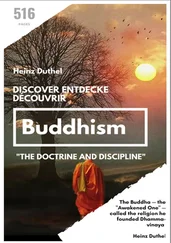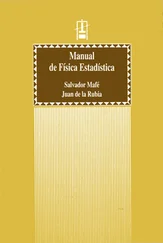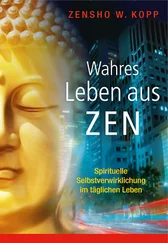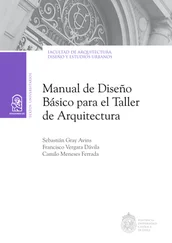Teitaro Suzuki - Manual of Zen Buddhism
Здесь есть возможность читать онлайн «Teitaro Suzuki - Manual of Zen Buddhism» весь текст электронной книги совершенно бесплатно (целиком полную версию без сокращений). В некоторых случаях можно слушать аудио, скачать через торрент в формате fb2 и присутствует краткое содержание. Жанр: Религиоведение, Религия, Руководства, на английском языке. Описание произведения, (предисловие) а так же отзывы посетителей доступны на портале библиотеки ЛибКат.
- Название:Manual of Zen Buddhism
- Автор:
- Жанр:
- Год:неизвестен
- ISBN:нет данных
- Рейтинг книги:3 / 5. Голосов: 1
-
Избранное:Добавить в избранное
- Отзывы:
-
Ваша оценка:
- 60
- 1
- 2
- 3
- 4
- 5
Manual of Zen Buddhism: краткое содержание, описание и аннотация
Предлагаем к чтению аннотацию, описание, краткое содержание или предисловие (зависит от того, что написал сам автор книги «Manual of Zen Buddhism»). Если вы не нашли необходимую информацию о книге — напишите в комментариях, мы постараемся отыскать её.
Manual of Zen Buddhism — читать онлайн бесплатно полную книгу (весь текст) целиком
Ниже представлен текст книги, разбитый по страницам. Система сохранения места последней прочитанной страницы, позволяет с удобством читать онлайн бесплатно книгу «Manual of Zen Buddhism», без необходимости каждый раз заново искать на чём Вы остановились. Поставьте закладку, и сможете в любой момент перейти на страницу, на которой закончили чтение.
Интервал:
Закладка:
“No, World-honoured One, he is not to be recognized after a body-form. Why? According to the Tathagata, a body-form is not a body-form.”
The Buddha said to Subhuti, “All that has a form is an illusive existence. When it is perceived that all form is no-form, the Tathagata is recognized.”
6. Subhuti said to the Buddha: “World-honoured One, if beings hear such words and statements, would they have a true faith in them?”
The Buddha said to Subhuti: “Do not talk that way. In the last five hundred years after the passing of the Tathagata, there may be beings who, having practised rules of morality and, being thus possessed of merit, happen to hear of these statements and rouse a true faith in them. Such beings, you must know, are those who have planted their root of merit not only under one, two, three, four, or five Buddhas, but already under thousands of myriads of asamkhyeyas of Buddhas have they planted their root of merit of all kinds. Those who hearing these statements rouse even one thought of pure faith, Subhuti, are all known to the Tathagata, and recognized by him as having acquired such an immeasurable amount of merit. Why? Because all these beings are free from the idea of an ego, a person, a being, or a soul; they are free from the idea of a dharma as well as from that of a no-dharma. Why? Because if they cherish in their minds the idea of a form, they are attached to an ego, a person, a being, or a soul. If they cherish the idea of a dharma, they are attached to an ego, a person, a being, or a soul. Why? If they cherish the idea of a no-dharma, they are attached to an ego, a person, a being, or a soul. Therefore, do not cherish the idea of a dharma, nor that of a no-dharma. For this reason, the Tathagata always preaches thus: ‘O you Bhikshus, know that my teaching is to be likened unto a raft. Even a dharma is cast aside, much more a no-dharma.’”
7. “Subhuti, what do you think? Has the Tathagata attained the supreme enlightenment? Has he something about which he would preach?”
Subhuti said: World-honoured One, as I understand the teaching of the Buddha, there is no fixed doctrine about which the Tathagata would preach. Why? Because the doctrine he preaches is not to be adhered to, nor is it to be preached about; it is neither a dharma nor a no-dharma. How is it so? Because all wise men belong to the category known as non-doing ( asamskara ), and yet they are distinct from one another.
8. “Subhuti, what do you think? If a man should fill the three thousand chiliocosms with the seven precious treasures and give them all away for charity, would not the merit he thus obtains be great?”
Subhuti said: “Very great, indeed, World-honoured One.”
"Why? Because their merit is characterized with the quality of not being a merit. Therefore, the Tathagata speaks of the merit as being great. If again there is a man who, holding even the four lines in this sutra, preaches about it to Others, his merit will be superior to the one just mentioned. Because, Subhuti, all the Buddhas and their supreme enlightenment issue from this sutra. Subhuti, what is known as the teaching of the Buddha is not the teaching of the Buddha.
9. “Subhuti, what do you think? Does a Srotapanna think in this wise: ‘I have obtained the fruit of Srotapatti’?”
Subhuti said: “No, World-honoured One, he does not. Why? Because while Srotapanna means ‘entering the stream’ there is no entering here. He is called a Srotaparma who does not enter [a world of] form, sound, odour, taste, touch, and quality.”
“Subhuti, what do you think? Does a Sakridagamin think in this wise, ‘I have obtained the fruit of a Sakridagamin’?”
Subhuti said: “No, World-honoured One, he does not. Why? Because while Sakridagamin means ‘going-and-coming for once’, there is really no going-and-coming here, and he is then called a Sakridagamin.”
“Subhuti, what do you think? Does an Anagamin think in this wise: ‘I have obtained the fruit of an Anagamin’?”
Subhuti said: “No, World-honoured One, he does not. Why? Because while Anagamin means ‘not-coming’ there is really no not-coming and therefore he is called an Anagamin.”
“Subhuti, what do you think? Does an Arhat think in this wise: ‘I have obtained Arhatship’?”
Subhuti said: “No, World-honoured One, he does not. Why? Because there is no dharma to be called Arhat. If, World-honoured One, an Arhat thinks in this wise: ‘I have obtained Arhatship,’ this means that he is attached to an ego, a person, a being, or a soul. Although the Buddha says that I am the foremost of those who have attained Aranasamadhi, [3]that I am the foremost of those Arhats who are liberated from evil desires, World-honoured One, I cherish no such thought that I have attained Arhatship. World-honoured One, [if I did,] you would not tell me: ‘O Subhuti, are one who enjoys the life of non-resistance.’ Just because Subhuti is not at all attached to this life, he is said to be the one who enjoys the life of non-resistance.”
10. The Buddha said to Subhuti: “What do you think?
When the Tathagata was anciently with Dipankara Buddha did he have an attainment in the Dharma?”
“No, World-honoured One, he did not. The Tathagata while with Dipankara Buddha had no attainment whatever the Dharma.”
“Subhuti, what do you think? Does a Bodhisattva set any Buddha-land in array?”
“No, World-honoured One, he does not.”
“Why? Because to set a Buddha-land in array is not to set it in array, and therefore it is known as setting it in array. Therefore, Subhuti, all the Bodhisattva-Mahasattvas should thus rouse a pure thought. They should not cherish any thought dwelling on form; they should not cherish any thought dwelling on sound, odour, taste, touch, and quality; they should cherish thoughts dwelling on nothing whatever. Subhuti, it is like unto a human body equal in size to Mount Sumeru; what do you think? Is not this body large?”
Subhuti said: “Very large indeed, World-honoured One. Why? Because the Buddha teaches that that which is no-body is known as a large body.”
11. “Subhuti, regarding the sands of the Ganga, suppose there are as many Ganga rivers as those sands, what do you think? Are not the sands of all those Ganga rivers many?”
Subhuti said: “Very many, indeed, World-honoured one.”
“Considering such Gangas alone, they must be said to be numberless; how much more the sands of all those Ganga rivers! Subhuti, I will truly ask you now. If there is a good man or a good woman who, filling all the worlds in the three thousand chiliocosms—all the worlds as many as the sands of these Ganga rivers—with the seven precious treasures, Uses them all for charity, would not this merit be very large?”
Subhuti said: “Very large indeed, World-honoured One.”
Buddha said to Subhuti: “If a good man or a good woman holding even four lines from this sutra preach it to others, this merit is much larger than the preceding one.
12. “Again, Subhuti, wherever this sutra or even four lines of it are preached, this place will be respected by all beings including Devas, Asuras, etc., as if it were the Buddha's own shrine or chaitya; how much more a person who can hold and recite this sutra! Subhuti, you should know that such a person achieves the highest, foremost, and most wonderful deed. Wherever this sutra is kept, the place is to be regarded as if the Buddha or a venerable disciple of his were present.”
13. At that time, Subhuti said to the Buddha: “World-honoured One, what will this sutra be called? How should we hold it?”
The Buddha said to Subhuti: “This sutra will be called the Vajra-prajna-paramita , and by this title you will hold it. The reason is, Subhuti, that, according to the teaching of the Buddha, Prajnaparamita is not Prajnaparamita and therefore it is called Prajnaparamita. Subhuti, what do you think? Is there anything about which the Tathagata preaches?”
Читать дальшеИнтервал:
Закладка:
Похожие книги на «Manual of Zen Buddhism»
Представляем Вашему вниманию похожие книги на «Manual of Zen Buddhism» списком для выбора. Мы отобрали схожую по названию и смыслу литературу в надежде предоставить читателям больше вариантов отыскать новые, интересные, ещё непрочитанные произведения.
Обсуждение, отзывы о книге «Manual of Zen Buddhism» и просто собственные мнения читателей. Оставьте ваши комментарии, напишите, что Вы думаете о произведении, его смысле или главных героях. Укажите что конкретно понравилось, а что нет, и почему Вы так считаете.








